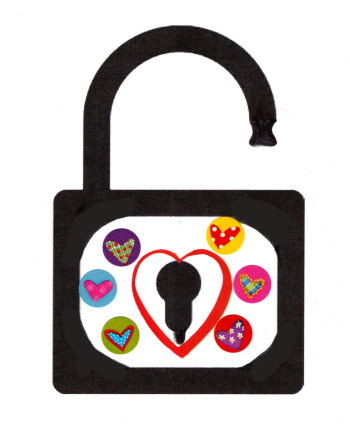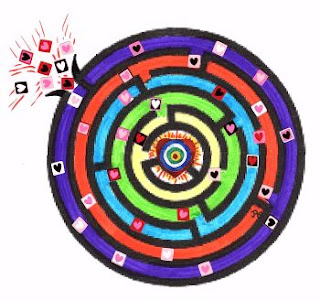Synopsis: Why asking is crucially important; Three basic things to understand; Three blocks to get past; 10 essential questions to ask yourself first; The seven major elements of a really good love request to learn and practice.
The research also is clear that people in a great many couple, family, friendship and other love relationships don’t do a good job of effectively asking for what they want and, therefore, they frequently don’t get what they want. This leads to disappointment, misunderstandings, frustration, anger, fights, loneliness, breakups and many other forms of agony and dysfunction. From ineffective, and sometimes even nonexistent requests flow many of the worst relational problems which, with the making of good requests, might mostly be avoided.
It’s important to understand three ‘basic, background concepts regarding ‘asking for what you want’:
Concept 1. Asking shares yourself Whenever you ask for something you want you have shared an important part of yourself. To not ask is to not share an important truth about you. Remember, one of the eight major ways to directly love someone is termed Self Disclosure Love. The truth seems to be we always are going after what we want subconsciously, semi-consciously or consciously. Everything that lives survives by going after what it wants. Going after it consciously and clearly by verbally asking for what we want makes the teamwork of relationship much more clear and much more likely to work. Clearly sharing your desires helps those you love to not have to guess, to not miss important aspects of you, to not make mistakes and it can help them feel not only personally shared with but personally important and valued.
Concept 2. Asking is responsible love behavior If I ‘own’ a desire or want, as an adult I ‘own’ the responsibility to do something about my desire or want. You can help but it’s my job to do something about it. I can use my response-ability of verbalizing clearly what I want with my love response-ability by making my requests known as lovingly as possible. By using terms of endearment, soft tones of voice, loving facial expressions, and perhaps loving touch mixed with honest, behaviorally clear requests, two or more people can responsibly create the teamwork of good love relating.
Concept 3. Asking fulfills love needs best In your wants are hidden your needs. You may want the pleasure of a caress and biologically need the neurochemical endorphin release the caress activates. To function well we need the nourishment of healthy, real love. The quickest and most efficient way to get that needed nourishment is to ask for it. As you perhaps have noticed, I am fond of saying love is an essential psychological food that nourishes us pretty much like healthy, physical food does. Love energizes us and without it we begin to malfunction in numerous psycho-biological and relational ways. Love relationships work just like restaurants. They can provide you very enjoyable nourishment and may even come with a very pleasant milieu but they both depend on just one thing – asking for what you want.
Imagine going to a restaurant and not asking for what you want, and imagine what you would get. It might be similar to what you get in a love relationship when you don’t do a good job of asking for what you want. I suggest that the better you ask the better your chances are of actually getting what you want (no guarantee). Equally important is hearing and understanding rather exactly what your beloved wants. Much of giving healthy, real love is about helping your loved ones get what they want and perhaps to get what they need.
You may be blocked from asking for what you want by three dangerous and often destructive myths. One myth is ‘If you really love me you know what I want, and you will give it to me’. (See “Anti-Love Myth #1: True Love Means You Will Know What to Do”). Let me suggest the truth is that love does not come with a crystal ball or automatic mind-reading ability, therefore, communication, including asking for what you want, is necessary. The next myth is ‘If I have to ask you for what I want it spoils getting it’. That is only true if you make it so. Let me suggest that asking for what you want is a gift of self loving, self disclosure and letting yourself be vulnerable with a loved one.
Withholding what you want often can help your loved ones fail at loving you and, therefore, actually is an anti-love act. A third myth is ‘Asking for what I want is selfish and unloving’. The 3000-year-old admonition to ‘love others AS you love yourself’ is wonderfully just right. It provides for the possibility of ‘I win , you win and there need be no loser’ outcomes. (See “Loving Others AS You Love Yourself???”) I suggest asking for what you want is an act of healthy self-love that’s necessary for the workings of healthy love relationships.
Asking Yourself Ten Essential Questions first Here are 10 very important questions to ask yourself before you start learning how to do a better job of asking for what you want with love:
1. Do I wait so long to say something about what I want that I come across unhappy, mad or otherwise negative when I finally do bring it up?
2. Do I gripe and complain about not getting what I want as a way to ask for it and, thus, sabotage the whole process?
3. Do I pick poor and bad times to bring up what I want, like when we are tired, in a rush, at work, stressed, needing to focus on other things, etc.?
4. Do I complain more about what I don’t get than give thanks and praise for what I do get?
5. Do I make my requests too vague, abstract, general and nonspecific, thus, sabotaging my chances for getting what I really want?
6. Do I hint, give clues, and generally ask indirectly, instead of directly and clearly asking for what I want?
7. Do I let fears, apprehension, and doubts slow or stop me from asking for what I want, especially about the love and its expressions I want and probably need?
8. Do I ask for what I want in a loving tone of voice and with a loving look on my face?
9. Do I discuss my wants with manipulative terms like “I need …”, “You never give me…”, “I never have enough…”, “It’s not fair that…”, “Why don’t you ever…”, and so forth?
10. Do I ask for what I want like a demanding parent, a begging child, or an OK, equal adult?
The 7 Major Elements of Asking for What You Want with Love Here are the major elements of making a healthy, loving request. I suggest you study them closely and practice them a lot. I also suggest you help your loved ones learn them and practice them on you.
1. Ask for what you want behaviorally like “I want a hug” which is a clear, behavioral request as opposed to “I could use some affection” which is not nearly specific enough. “I want us to go dancing” is behaviorally good while “It would be nice if we did something fun” is okay for a start but inadequate without specific behaviors added because it is open to too many different interpretations and misinterpretations.
2. Ask for what you want with loving tones of voice, loving facial expressions and loving touches if possible. Sounding or looking angry, sad, fearful, weak, domineering, blasé, bored, arrogant, dictatorial, superficial, uncaring, etc. tends to sabotage the request and the love relationship.
3. Ask with a time range included. Here’s an example, “I’d like us to go to the movies Friday at about 7 P.M. and plan to get home by 11 P.M., if that works for you”. Statements like, “How about we go someplace, or do something, sometime, OK?” can only be good if they lead into specific requested behaviors that cover what exactly, where exactly and when exactly might the desired behavior occur.
4. Be lovingly willing to trade, negotiate, synthesize, compromise, etc.. She happily said, “I will go see that adventure movie you want to see Saturday night, if you go with me to see my ‘chick flick’ Sunday after lunch.” He said, “You want the sea shore and I want the mountains. Let’s start looking for vacation places that have both close to each other.”
5. Ask the difficult to ask questions. She said, “I’m a little embarrassed to say this out loud but the truth is I want us to make tender, sweet, sexy love this Sunday afternoon, and then wild, naughty, dirty sex Wednesday night after the kids are gone. What do you think and feel about what I’m asking and the way I’m asking it?” He bravely said, “I’m ashamed to admit it but I’m feeling really insecure and I’m asking you to reassure me that you love me and that I’m your number one love and there is no number two – if that’s true?”
6. Be lovingly willing to hear “no”, “not yet”, “I’m not ready”, etc. and to negotiate lovingly from there. Unless you are lovingly willing to accept those kind of answers you’re not requesting – you are demanding. There are no punishments or retaliations for loving requests which are denied or postponed in a healthy, loving relationship. There, however, can be a little show of disappointment and that might receive a little sympathy.
7. Lovingly ask often and much. The more you don’t ask for what you want the more you are keeping a loved one in the dark, the more you are setting yourself up for disappointment and setting your relationship up for dysfunction.
Healthy love-based requests, of course, tend to be loving but also, well-timed, accurate, assertive, sufficient, behaviorally clear and democratic in nature. Much research shows that the happiest and most successful love relationships contain people doing a good job of asking for what they want along with really hearing what their loved ones want.
As always Go and Grow with Love
Dr. J. Richard Cookerly
♥ Love Success Question Did you grow up in a situation that perhaps subconsciously programmed you to be more comfortable, or more uncomfortable with people lovingly asking for what they wanted and hearing what others wanted?









